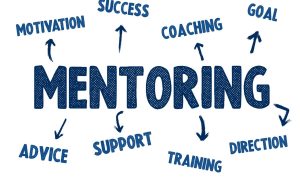Everyone has moments where they catch themselves thinking, “Am I being too self-centred?” It’s not always easy to measure. Some level of self-focus is natural and even necessary for survival. Yet when the scale tips too far, it can negatively impact relationships, career growth, and even overall happiness.
The question “How Self-Centred Are You?” isn’t about shaming—it’s about awareness. Recognizing patterns, behaviors, and motivations can help you strike a balance between healthy self-interest and destructive self-absorption. This article explores why people behave in this manner, how to identify the signs, and—more importantly—how to transform self-focus into genuine self-awareness.
The Mirror Principle
Think of self-centredness like looking into a mirror. It reflects more about you than about others. Psychologists often talk about projection—where we see in others the traits we dislike or can’t accept in ourselves. The mirror principle highlights how our perception of the world is deeply tied to our internal state.
For instance, someone who constantly criticizes others may secretly struggle with self-doubt. In contrast, people who celebrate others often reveal their own secure sense of self. Your treatment of others is usually a reflection of how you treat yourself. That’s why the mirror principle is powerful—it forces you to consider whether your judgment of others is actually a judgment of yourself.
Unpacking the “Why”

Why do some people lean toward self-centred behavior? The reasons are layered. Childhood upbringing plays a role—children raised in environments where love was conditional may grow into adults seeking constant validation. Trauma, neglect, or overindulgence can equally create an inward pull.
Cultural conditioning also shapes behavior. In hyper-competitive societies, the “me first” mindset often feels like a matter of survival. Even modern technology feeds this cycle. Social media rewards self-display, turning likes and followers into modern-day trophies. Studies from Pew Research have shown that younger generations feel increasing pressure to perform online. This has heightened tendencies toward self-focus.
Ultimately, the “why” isn’t about villainizing anyone—it’s about identifying the root causes so growth can happen.
Decoding Your Inner Compass
Everyone has an inner compass that guides their decisions. For self-centred individuals, the compass often points toward personal gain. It’s not always obvious. Sometimes it shows up in subtle ways: interrupting conversations, taking credit at work, or dismissing others’ struggles.
The problem isn’t ambition or confidence—it’s the lack of balance. Proper alignment means considering how choices affect both you and those around you. When your compass leans too heavily toward “me,” it distorts the path you’re on. The result? Strained friendships, lost trust, and missed opportunities for deeper connections.
Real-world leaders illustrate this. Think of CEOs who prioritize personal profit over employee well-being—their businesses may grow fast, but often collapse under a toxic culture. On the other hand, leaders like Satya Nadella of Microsoft emphasize empathy as a key driver of long-term success. The difference lies in where their inner compass points.
Self-Assessment Checklist
So, how self-centred are you? Here are some questions worth reflecting on:
- Do you listen more than you speak, or do you dominate conversations?
- When someone shares good news, do you celebrate them or compare it to yourself?
- Do you ask about others’ well-being without expecting something in return?
- How often do you put yourself in someone else’s shoes before making decisions?
Psychologists often recommend journaling as a way to answer such questions. It creates clarity and honesty. You don’t have to be perfect; the goal is awareness.
How Self-Centredness Shapes Your World
Self-centredness changes how you interact with the world. In relationships, it creates distance. Partners, friends, and colleagues may feel undervalued or ignored. Over time, this erodes trust.
In the workplace, self-centered behavior can hinder collaboration. A study by the Harvard Business Review found that teams led by self-focused managers reported lower morale and higher turnover rates. People want to work with leaders who share credit, not hoard it.
On a personal level, self-centredness also limits perspective. When your focus is only inward, you miss out on collective wisdom. Imagine standing in a crowd with blinders on—you see yourself clearly but miss the richness of others’ experiences.
An Unfulfilled Inner Life
Ironically, being overly self-centred often leads to emptiness. Why? Because fulfillment rarely comes from self-absorption. People who focus only on themselves tend to experience higher levels of loneliness—studies from the Journal of Personality and Social Psychology link extreme self-focus with lower life satisfaction.
Chasing validation, likes, or recognition creates a hunger that never seems to end. The cycle becomes exhausting. Meanwhile, people who cultivate empathy and connection often report more profound joy and resilience. Giving and receiving are two sides of the same coin—without both, life feels incomplete.
From Self-Focus to Self-Awareness
Here’s the twist: self-focus isn’t always a bad thing. In fact, it’s the foundation of self-awareness. The difference lies in intent. Self-focus driven by insecurity can drain relationships, but self-focus directed at growth can fuel them.
For example, setting personal boundaries isn’t selfish—it’s a matter of self-respect. Pursuing your goals isn’t self-centred if you’re also mindful of others. The line between healthy self-focus and harmful self-centredness lies in whether your actions enrich or harm those around you.
Think of it this way: self-awareness asks, “How do my actions affect others?” Self-centredness asks, “How do others’ actions affect me?”
Cultivating Self-Awareness and Self-Reflection
Self-awareness is a skill. It requires deliberate practice. Meditation, journaling, and feedback loops are practical ways to build it. Meditation slows the noise, allowing you to notice thoughts and emotions without reacting. Journaling creates patterns you can spot over time. Feedback from trusted friends reveals blind spots.
Take the case of Ray Dalio, founder of Bridgewater Associates. He built an entire company culture around radical transparency. By welcoming feedback, he created an environment where self-awareness was a competitive advantage. That kind of openness isn’t comfortable—but it’s transformative.
Self-reflection is most effective when paired with action. Ask yourself: “What did I do today that put someone else first?” Small daily checks compound into significant personal growth.
Building Empathy and Compassion
If self-awareness is the engine, empathy is the fuel. Empathy lets you feel with others, not just for them. Compassion turns that empathy into action.
Real-world examples prove this point. During the COVID-19 pandemic, communities that thrived were those where neighbors looked out for one another. From delivering groceries to calling elderly relatives, empathy became a matter of survival. These stories highlight how compassion fosters resilience—not just in individuals, but in entire societies.
Training empathy isn’t abstract. It starts with active listening, asking thoughtful questions, and resisting the urge to center every conversation around yourself. Over time, it shifts the focus from “me” to “we.”
Actionable Strategies for Lasting Transformation

Transformation doesn’t happen overnight, but consistent action creates lasting change. Start small:
- Replace one self-focused thought with a question about someone else’s day.
- Share credit in team projects, even if you did most of the work.
- Volunteer for causes that stretch your perspective.
Studies from the University of Michigan suggest that volunteering not only enhances community health but also boosts personal happiness. Shifting from self-centredness to contribution rewires the brain’s reward system.
Another strategy? Practice gratitude. Writing down three things you’re grateful for each day can help shift your focus away from what you lack. Gratitude has been linked to better mental health and stronger relationships.
The goal isn’t perfection. It’s progress. Each small step chips away at self-centredness and builds the foundation of a more connected, fulfilling life.
Conclusion
So, how self-centred are you? The answer isn’t static. It shifts with awareness, habits, and choices. Self-focus can either trap you in isolation or transform you into someone deeply connected to others.
The key lies in recognizing when your inner compass points too strongly toward yourself. With reflection, empathy, and daily action, you can realign it toward balance. The reward is not just better relationships—it’s a richer, more meaningful life.
FAQs
Not necessarily. A degree of self-focus is healthy. Problems arise when it consistently disregards others’ needs.
Yes. With awareness, reflection, and consistent action, self-centred patterns can shift into healthier behaviors.
Look for patterns: Do people pull away from you? Do conversations often circle back to you?
A huge one. Competitive, individualistic cultures often encourage self-centred traits, while collectivist ones emphasize community.
Start by asking more questions about others. Listen with the intent to understand, not to respond.





